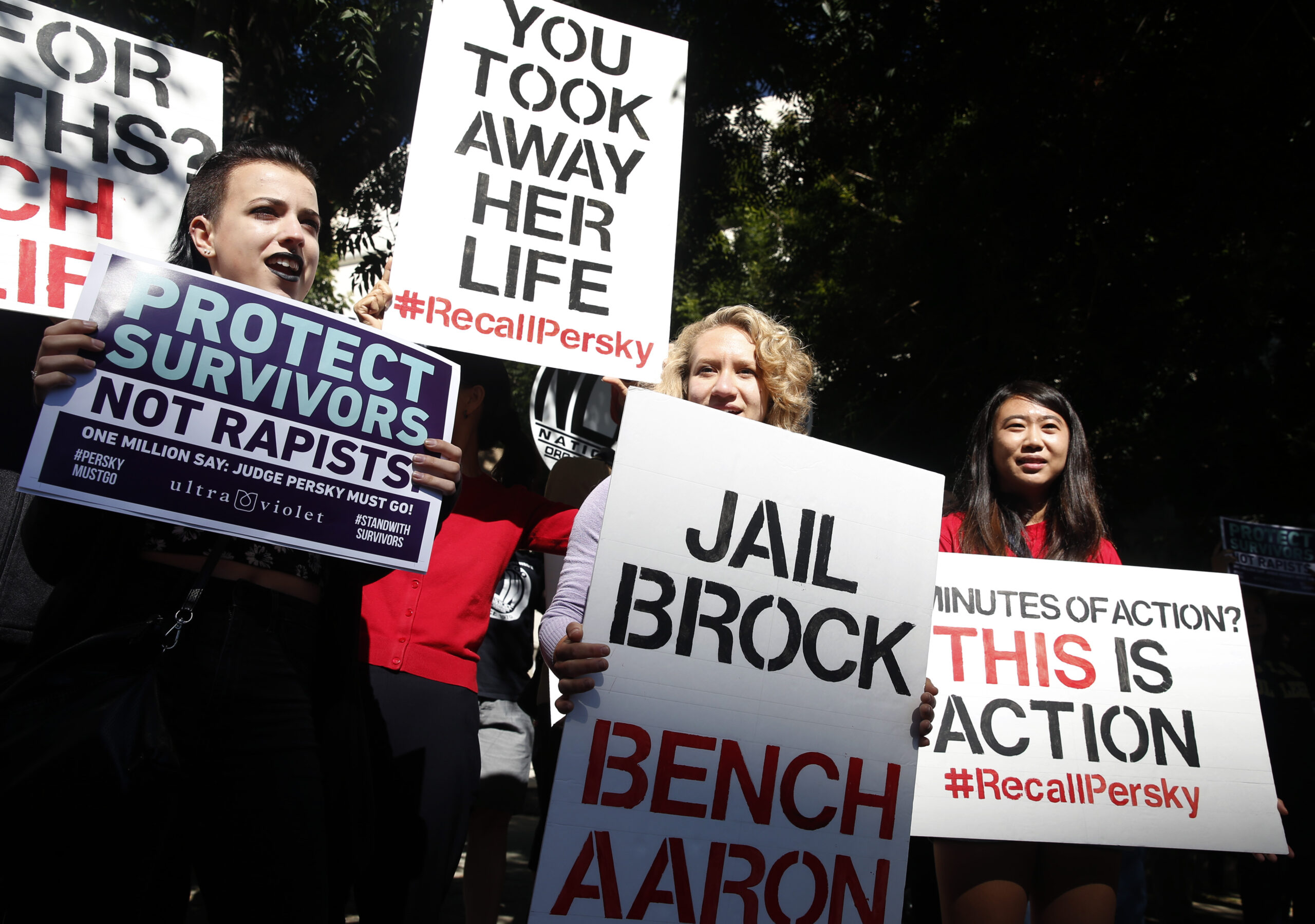Five years ago, the #MeToo movement scored what many within its ranks saw as a victory with the recall of Judge Aaron Persky. Persky—the first sitting California judge to be successfully recalled since 1932—was defrocked after sentencing Brock Turner, convicted rapist and Stanford athlete, to only six months in county jail.
Critics of Persky said the sentence was far too lenient and claimed that Turner was benefiting from his white privilege and elite background.
Yet a new documentary from MSNBC argues that the rationale behind the recall was built upon false assumptions, and makes the case that recall proponents may have inadvertently hurt the prison reform movement by stripping Persky of his robes.
“The Recall: Reframed,” directed by filmmaker and Harvard Law Lecturer Rebecca Richman Cohen, questions who actually bears the brunt of a call for increased sentencing—typically people of color—while also pointing to cherry-picked evidence used in the movement to recall the California judge.
“This seemed like a real opportunity to correct a media narrative that had gone wrong,” Cohen said, noting that public defenders at the time attempted to flag the dangerous consequences of such a recall but were largely ignored by media outlets.
You want a judge to follow the law, not people’s will, the documentary argues, making the claim that we’d have no judges if we recalled everyone we disagreed with. A hypothetical is posed in the film: What if a judge in conservative Kansas felt pressured to rule against abortion, even if it was legal, when it was unpopular in the state?
Cohen cited two sources of legitimate outrage that fueled the recall movement: the prevalence of sexual violence (particularly on college campuses) and the failures of the criminal legal system.
“They were rightfully angered by the sentencing disparity,” Cohen said, pointing out that people of color often receive longer sentences for similar crimes committed by white people. “But they were recalling a judge who had a pattern of rather lenient sentencing.”
But equating accountability with long incarceration, according to Cohen, is not only misguided, it also ends up hurting people of color even more.
“Sentencing went up 30% across California in the six weeks following the recall,” Cohen said, pointing to what she said was a trend of longer sentences handed down in the wake of the recall throughout the state.
The director acknowledged the “profound cognitive dissonance” that can occur for people who supported the recall and who are also against mass incarceration, which are typically both progressive positions. People who supported the recall are now finding their assumptions challenged. “We have had hard and important conversations,” Cohen said, acknowledging the other side.
Michele Dauber, the Stanford law professor who spearheaded the recall, presented a different perspective when asked for comment.
“As for any supposed negative consequences of the recall, in my view, there is no credible evidence that the recall election produced longer sentences,” Dauber said. “That’s because, contrary to the arguments of recall critics, most judges are trying to follow the law and act with integrity rather than following election results.”
Dauber said Persky’s defenders relied on victim-blaming, whereas her coalition for the recall comprised dozens of leading women’s organizations and elected Democratic leaders across the state and country.
The Stanford law professor also indicated that the Persky recall was about more than just securing a longer sentence for Turner. “[It’s about making] a strong statement against rape culture in the legal system,” Dauber said.
As for Cohen, it’s not the director’s first work on such a subject—she also made the 2016 feature film Untouchable, which follows three survivors of sexual violence and three people convicted of sex crimes, highlighting the failures of the sex offenders’ registry to bring justice and provide safety.
Despite overall falling incarceration rates, the U.S. imprisons more of its population than any other country in the world. Despite having only 5% of the world’s population, the U.S. has 20% of the global prisoner population.
Cohen doesn’t provide the answers in her film, but she wants to raise the question of what justice can look like beyond harsher prison sentences.
“We need to reframe the conversation with what we know now,” she said.
“The Recall: Reframed” airs on MSNBC on March 19, 2023.
Correction: Brock Turner was sentenced to six months in county jail, not prison. Michele Dauber, who spearheaded the recall, accused Persky’s defenders—not the Turner defense—of victim-blaming. Rebecca Richman Cohen is a lecturer at Harvard. “Untouchable” is a feature film, not a short.
